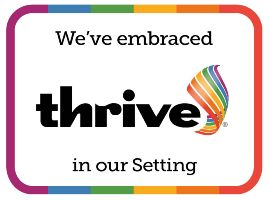Exploring Parenting - managing your child's behaviour
Workshop details
This week Glebe hosted its third ‘Exploring Parenting’ workshop – Managing your child’s behaviour (Part 2). These workshops are drop in sessions from 9.15 – 11.15am and do not have to be booked in advance – just turn up – we’d love to see you. We however respectfully ask that you find alternative childcare for young children if you plan to attend.
On Wednesday 3rdOctober 2018 the workshop focus was on Managing Behaviour (part 2). If you missed the workshop you may like to look at the information below.
The workshop looked at:
- Improving child parent relationships
- Reflective responding
- Acknowledge, Communicate, Target (A-C-T)
- Ages and Stages
- Choice Giving
- Golden Rules
A useful question to think about:
How do you recognise and respond to your child’s feelings and how are their feeling demonstrated in their behaviours?Some useful tips:
- A key skill is recognising how your child is feeling and reflecting those feelings back to your child through body language, eye contact and your voice tone
- Use active listening which involves good eye contact, avoiding distractions and understanding your child’s needs
- Positive parent child relationships are based on good communication
- Accurately reflecting back your child’s feeling will provide a mirror for your child to see him/herself more clearly
- The 3 step A-C-T method is used by parents to convey understanding, acceptance and responsibility to the child. The goal is to provide your child with acceptable outlets for expressing their feeling. The objective for the parent is not to stop the behaviour but rather to help the expression of the motivating feeling, want, or need in a more acceptable manner. Using A-C-T helps by giving the child the responsibility for changing their behaviour.
- We expect different behaviours from children depending on their age and developmental stage – choices must be given that are appropriate with a child’s developmental stage
- Focus on the relationship with your child (your strengths and your child’s strengths)
- Learn to RESPOND (reflect) rather than REACT. Your child’s feelings are not your feelings and needn’t escalate with him/her
- When a child is feeling upset or out of control that is not the time to impart a rule or teach a lesson
AND remember!
What’s most important may be what you do, but what you do after what you did!



